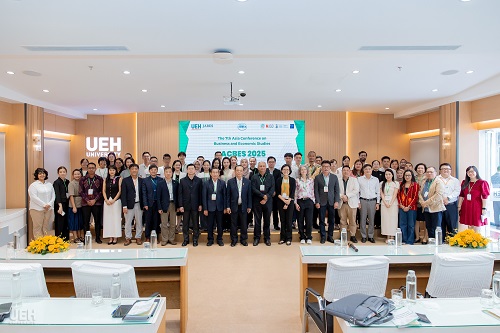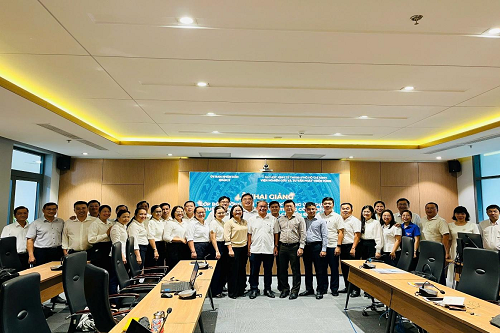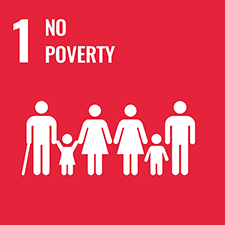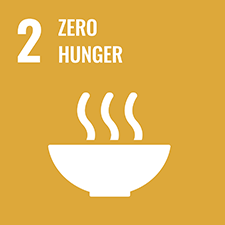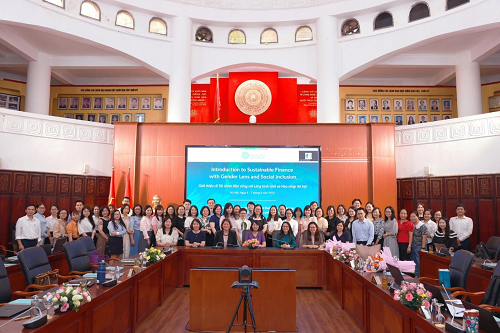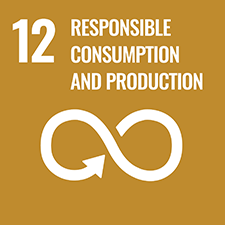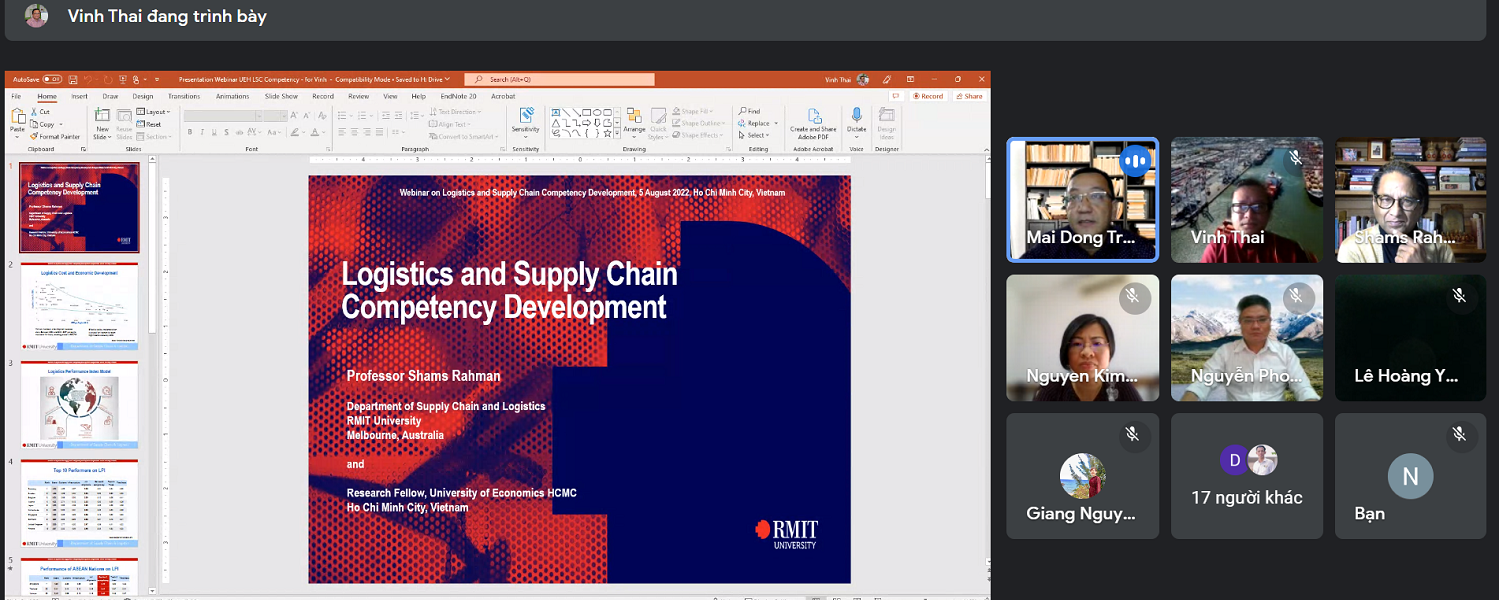
Webinar on Logistics and supply chain competency development
10 Aug, 2022
On the afternoon of August 5th 2022, in collaboration with RMIT University (Australia), the School of International Business - Marketing organized the Webinar on “Logistics and Supply Chain Competency Development”
The program received the participation of Assoc.Prof. Nguyen Phong Nguyen - Head of the Department of Research Management – International Cooperation, Assoc. Prof. Tran Mai Dong – Lecturer of the School of International Business - Marketing, along with the lecturers, researchers and students who are currently interested in Logistics and Supply Chain area. The Webinar was presented by Prof. Shams Rahman and Assoc. Prof. Vinh Thai, from Department of Supply Chain and Logistics, RMIT University, Australia, who were 2021 has been recognised among the world’s top 2% scholars.
At the webinar, Professor Shams Rahman first highlighted the role of logistics in economic development. Citing a report from the World Bank Group in 2022, Professor Rahman emphasized that Vietnam is in a group of countries where the share of logistics costs in GDP is still quite high, around 25%. Therefore, the focus should be on improving logistics performance in the country to further enhance economic growth. He explained that a country’s logistics performance can be measured by the World Bank’s Logistics Performance Index (LPI), an important logistics KPI which has been used to rank countries around the world. The key components of LPI include customs, infrastructure, tracking & tracing, ease of international shipment, logistics service quality, and timeliness. Among these, logistics service quality would be greatly affected by the competency of logistics professionals involved. Hence, it is important to determine the essential competencies that logistics professionals need to possess in order to successfully perform their job and contribute to logistics effectiveness and efficiency of their organization and the country. On this note, Professor Rahman also presented various competency models used by academics, professional bodies and some organisations which comprise various hard-core supply chain and logistics as well as soft skills, knowledge and attitude/abilities. It was also highlighted that these competencies would be affected to change in the near future due to various technological and socio-economic sectors.
Meanwhile, Associate Professor Vinh Thai presented key findings of the recently released Logistics Skills Forecast 2021 – 2023, which was commissioned by the Logistics Industry Reference Council (LIRC) in conjunction with Vietnam Chamber of Commerce and Industry (VCCI) and funded by the Aus4Skills program. This is the first industry-driven skills forecast with direct participation from logistics service providers (LSPs) and non-LSP firms in which logistics operations play a major role. It is expected to provide practical and systematic information on occupational skills for the logistics industry during 2021 – 2023 period. Among the key findings, it was found that the top logistics positions which are in shortage include logistics IT systems, logistics sales and transport/warehouse dispatcher. The five most important logistics knowledge and skills include foreign languages, information technology, planning of transport and equipment, understanding and application of logistics terms, and transportation management. In terms of soft skills, the report identified compliance with regulations and policies, handling high pressure at work, being proactive at work, honesty, work planning, and problem solving as essential to the success of logistics professionals. The results also showed the logistics skills and knowledge in which there are currently largest gaps between their perceived importance and current level of possession, namely, foreign languagues, information technology, reverse logistics, warehouse management, and planning of transport and equipment. The identified largest gaps relating to soft skills and capabilities are work planning; observing, thinking, analysing and decision-making; written and oral communication; problem solving; and creativity.
The report also identified five trends that will have the greatest impact on demand for logistics manpower up to 2023 i.e. sustainable logistics and supply chain, e-transactions, omnichannel logistics/distribution, changes in future job profiles, and application of digital technologies. These would lead to the increase in the demand of key logistics positions e.g. logistics IT systems, logistics sales and customer service, and the decrease in warehouse operator, inventory management and transport dispatcher. Looking into the future, it was identified in the report that the following logistics knowledge and skills are of high demand priority: foreign languagues, information technology, understanding and application of logistics terms, using logistics software and transportation management. Soft skills and capabilities of high demand priority in the future include compliance with regulations and policies, honesty, being proactive at work, handling high pressure at work, problem solving, and adapting to and using new technologies. It was also found that the logistics skills and knowledge with the largest gaps between current level of possession and future demand are foreign languagues, information technology, transportation management, reverse logistics management, using logistics softwares and purchasing management, while those gaps also exist in the following soft skills and capabilities i.e. creativity; adapting to and using new technologies; learning mindset; problem solving; and observing, thinking, analysing and decision-making. Last but not least, based on the gaps between perceived importance and current level of possession, as well as between current level of possession and future demand, each of these logistics skills and knowledge, and essential soft skills and capabilities is plotted in the gap matrices upon which policies and strategies are proposed accordingly.

